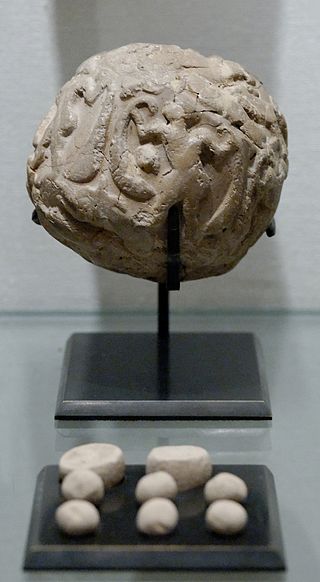Those who don’t learn from history are doomed to repeat it.
The learning part is missing, hence the round and round part, as well as the language, history and crimes part.
What have we failed to learn?
Way back 1946, In Politics and the English Language: An Essay on Writing George Orwell wrote, "if thought corrupts language, language can also corrupt thought. A bad usage can spread by tradition and imitation, even among people who should and do know better."
In 1949, in the Appendix of 1984, The Principles of Newspeak, George Orwell wrote, "The purpose of Newspeak was not only to provide a medium of expression for the world-view...but to make all other modes of thought impossible."
If we travel forward in time to just a few years ago, we will remember a world where infectious diseases like measles were held at bay by a robust uptake of vaccines because vaccines were considered a responsible way to protect our children and those around them. However, today we have measles outbreaks throughout North America because what has decimated vaccinations are antivaxxers words like "freedom". Freedom is defined as, "the absence of necessity, coercion, or constraint in choice or action" and its antonyms are "slavery, bondage, captivity, confinement, oppression, imprisonment". One can see why antivaxxers chose the word 'freedom' to describe their dangerous choice. They also tout phrases like, "do your own research" to dismiss the expertise of researchers and doctors and pretending that true expertise can be replaced by internet searches. This language hides the truth of community responsibility, the complicated expertise behind vaccine effectiveness and worst of all, it hides the suffering and deaths caused by these infections. The freedom to cause suffering and death is a freedom no one should want.
Fast forward to a meeting last week between Prime Minister Mark Carney and President Trump where language was again used to 'corrupt thought'. President Trump revisited the annexation of Canada, claiming the Canada-U.S. border is an "artificially drawn line...Somebody drew that line many years ago with, like, a ruler — just a straight line right across the top of the country... When you look at that beautiful formation, when it's together — I'm a very artistic person — but when I looked at that beaut, I said, 'That's the way it was meant to be.' "
Prime Minister Carney responded by saying, “Having met with the owners of Canada over the course of the campaign ... it’s not for sale. Won’t be for sale, ever.”
Prime Minister Carney's response was applauded throughout Canada by the owners of Canada. However, there was a great deal to worry about in that meeting. The U.S. president, on the world stage, touted some dangerous language, inciting some dangerous crimes and all crimes have victims.
Annexation of countries is prohibited by international law and at the core of that law is respect for territorial integrity of countries and their borders:
"The international legal norm that prohibits forcible annexations of territory is foundational to modern international law. It lies at the core of three projects that have been central to the enterprise: (1) to settle title to territory as the basis for establishing state authority; (2) to regulate the use of force across settled borders; and (3) to provide for people within settled borders collectively to determine their own fates."
This International law should not just be known, but the history of it must be understood as a law born from the atrocities of WWII. German annexation of Austria in 1938 was accomplished without the use of force but with the threat of force. Germany then went on to 'annex' other countries, igniting a world war and then losing that war. When the allies occupied Germany after the war, they did not annex Germany, hence earning the allies a place in history as standing on the side of ethics while German actions have been rightfully scorned.
The prohibition of annexation was born from the need to protect countries and protect the world from devastating wars. Understanding that history - the difference between those who annex and those who don't - is important.
What about the talk of calling the Canada-U.S. border an "artificially drawn line"? Well, that goes hand in hand with annexation because not invading countries means you respect their borders and their right to decide what happens within their borders.
"Respect for territorial integrity - the principle under international law that nation-states should not attempt to promote secessionist movements or to promote border changes in other nation-states, nor impose a border change through the use of force - is a guiding principle among OSCE participating States under Article IV of the Helsinki Final Act of 1975."
This language of annexing Canada, making it the 51st state, by erasing the borders between the countries is dangerous. Orwell said, "The purpose of Newspeak was not only to provide a medium of expression for the world-view...but to make all other modes of thought impossible." What is missing in this world-view is the illegality of annexation, the respect for borders as crucial for territorial integrity, the history of why annexation is illegal and how it has kept the peace. Basically, the complicated issues and history are replaced with catchphrases. On social media, even democrats opposing Trump have done so by buying his statements, saying they want to be annexed by Canada - a shocking statement indeed.
If we don't understand and learn from history we are forced to repeat it and the history we should remember is not just recent, it's ongoing - the attempt of Russia to annex the Ukraine has led to a devastating loss of life and the destruction of a way of life for Ukrainians within their borders. The reason annexation is illegal is because, like all crimes, there are victims that suffer. That is what would result in Canada as well if the U.S. attempted to annex us and make no mistake, Canadians understand the risk this poses for the ones they love, the life they love and the country they love. The anger of Canadians is because we understand what is at risk and have no patience with ridiculous jokes about our lives.
Imagine if this was another action that was once legal and is now illegal, like rape, was turned into a line repeated without acknowledging the ethical and personal implications. It would be outrageous to debate who will rape who, or saying that the use of the word 'no' is artificial and can be ignored. This is exactly what Orwell meant when he wrote, "language can also corrupt thought. A bad usage can spread by tradition and imitation, even among people who should and do know better."
So here we sit, on a merry go round of history not understood, language corrupted and limited to words and phrases failing to encompass any complexity of the concepts and the human costs of crimes. We have learned little from how simple words and phrases dismantled 225 years of robust vaccination. Annexation has been illegal for less than 100 years. What are the chances that it will withstand the new assault with language and how long until countries revert to taking over other countries as if it's not illegal?
Many of us tried to fight back against antivaxxers, and now we're fighting against annexation - the language, the simplicity of thought, the shrugging off of complexity and human suffering - it's all the same. So, round and round we go. While some have conversations about annexation with smiles on their faces, nodding in agreement, the rest of us are drowning in frustration, sadness and fury at the suffering and crimes their words are hiding. Language is being bastardized - removed from the history of words, the grave issues those words entail and this is a call for crimes to be committed with no regard for the victims impacted. When Putin called for the annexation of the Ukraine, the rest of the world was appalled and the resulting death and destruction has broken our hearts. Yet, a few years later when President Trump calls for the annexation of Canada, he is surrounded by supporters nodding, smiling and speaking with the media supporting this horrific action.
This is the exhausting round and round trip we're on - all it would take is a deeper understanding of history and language to get off the roundabout and walk forward on an open road again.


























